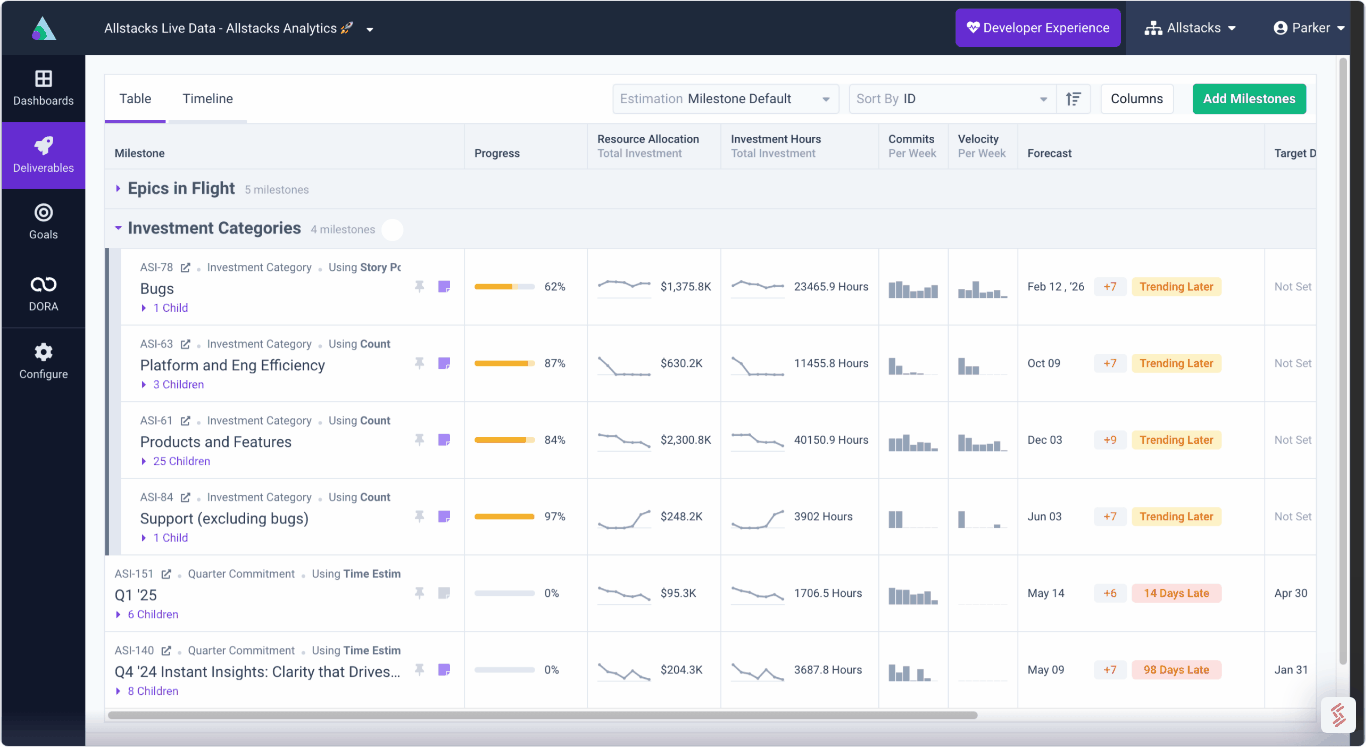.png)
Software Engineering Intelligence
-
Intelligence Engine
On-demand exhaustive AI-analysis
-
Engineering Investment
Complete visibility into time & dollars spent
-
360º Insights
Create meaningful reports and dashboards
-
Project Forecasting
Track and forecast all deliverables
DevEx
-
Developer Surveys
Create and share developer surveys
Software Capitalization
-
R&D Capitalization Reporting
Align and track development costs
The Hidden Tax of 'Quick Wins'
We all know there's something seductive about a quick win. It's tangible, immediate, and feels like progress. Your team ships a feature, closes a ticket, delivers a small improvement—and suddenly you've got momentum to show. The problem? Those quick wins often cost way more than the value they deliver.
.png?width=1600&height=900&name=Copy%20of%20Blog%20Template%201%20-%201600x900%20(3).png)
I call it the distraction tax, and it's the most underestimated killer of engineering productivity.
Here's the thing: when your team context-switches to chase every urgent request, something critical dies. Focus. And focus is what actually moves the needle on the problems that matter—the ones that take weeks or months to solve but define your product's future.
Every time someone switches contexts, there's a real cost. Cognitive load, reorienting to the previous task, lost momentum. Studies suggest it takes 15-25 minutes just to regain full focus. Do that three times a day across your team, and you're burning hours of productivity on the task-switching tax alone. But the real damage is architectural. Quick wins often skip the thinking. You're not designing for scale or maintainability—you're bandaging the symptom. That debt compounds.
And here's the subtle part: when everything becomes "urgent," nothing actually is. Your team stops trusting the prioritization system. They default to whatever landed in their inbox five minutes ago. Real strategy gets buried under the steady stream of "just this one small thing."
So how do you know when a quick win is actually a trap?
Ask yourself these questions:
First, does this move the needle on your core metrics or goals, or does it just feel productive? A quick win on something tangential isn't a win—it's a distraction with good branding.
Second, what focus am I sacrificing? If your team member was deep in solving your biggest bottleneck, the opportunity cost of pulling them out isn't zero. It's months of compound delay on the thing that actually matters.
Third, why is this urgent? Often, urgency is just poor planning or communication. A request that feels critical today was probably predictable last week. Can it wait? Can it be batched with other small asks?
Finally, what happens if we say no? Usually, not much. The requester finds a workaround, the problem resolves itself, or you discover it was never as important as it seemed.
The teams I see winning at scale aren't the ones executing the most quick wins. They're the ones protecting focus fiercely. They say no strategically. They batch the small stuff. And they measure themselves on impact, not throughput.
Quick wins feel good. But they're often just expensive distractions wearing a motivational disguise!


.png)
